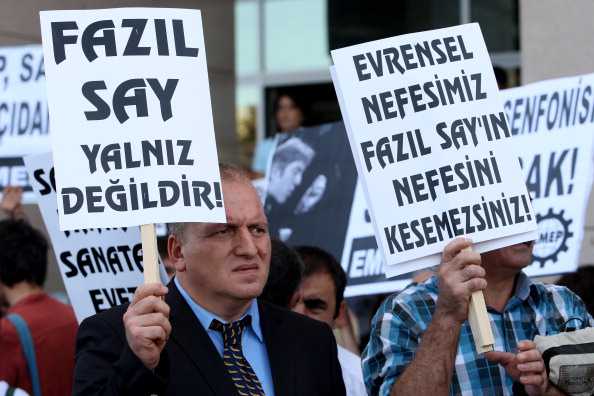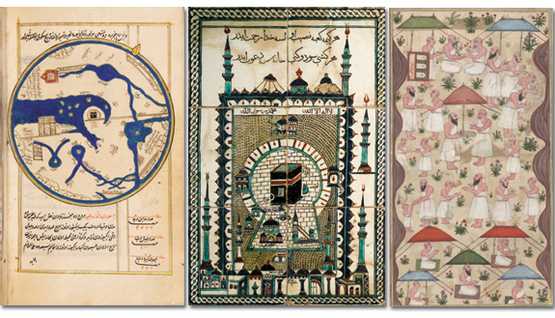By SUZAN FRASER — Associated Press

ANKARA, TURKEY — A Turkish court on Monday convicted top Turkish pianist and composer Fazil Say of denigrating religion through comments he made on Twitter and handed down a 10-month suspended prison sentence, his lawyer said.
The 43-year-old musician who has played with the New York Philharmonic, the Berlin Symphony and other world orchestras was on trial for sending tweets last year, including one that joked about a religious leader and some Islamic practices.
He is the latest in a series of intellectuals and artists to be prosecuted in Turkey for expressing their opinions and his case has raised further concern over rights and freedoms in the country, a democracy with a mostly Muslim population that seeks membership in the European Union.
Say has also been a strong critic of the Islamic-rooted government of Prime Minister Recep Tayyip Erdogan, a devout Muslim who expounds conservative values, alarming some secular Turks who fear the government plans to make religion part of their lifestyle.
In one tweet, Say joked about a call to prayer that he said lasted only 22 seconds. Say tweeted: “Why such haste? Have you got a mistress waiting or a raki on the table?” Raki is a traditional alcoholic drink made with aniseed. Islam forbids alcohol and many Islamists consider the remarks unacceptable.
The charges against Say also cited other tweets he sent, including one – based on a verse attributed to famous medieval poet Omar Khayyam – that questioned whether heaven was a tavern or a brothel, because of the promises that wine will flow and each believer will be greeted by virgins.
Emre Bukagili, a citizen who filed the initial complaint against Say, said in an emailed statement that the musician had used “a disrespectful, offensive and impertinent tone toward religious concepts such as heaven and the call to prayer.”
Lawyer Meltem Akyol said the pianist’s sentence has been suspended for five years, which means he would have to serve the sentence if he reoffends in that time.
The lawyer said Say has not yet decided whether to appeal the verdict. He has closed his Twitter account, however.
In a statement, Say called the verdict “a sad one for Turkey.”
“The fact that I was given a sentence despite my innocence is cause for concern with regard freedoms of expression and belief,” he said.
The government meanwhile, appeared to distance itself from the verdict.
“I would not wish anyone to be put on trial for words that have been expressed. This is especially true of artists and cultural figures,” Culture and Tourism Minister Omer Celik said. “But… this is a judicial decision.”
Sevim Dagdelen, a German lawmaker who has campaigned for Say, called his conviction “a scandal,” and said that Turkey’s attempts to join the EU should be frozen. She also accused the court of making an example of Say to silence critics of the government.
Turkey has a history of prosecuting its artists and writers.
Turkish Nobel laureate Orhan Pamuk was prosecuted for his comments about the mass killings of Armenians under a law that made it a crime to insult the Turkish identity before the government eased that law in an amendment in 2008.
In 2007, ethnic Armenian journalist Hrant Dink, who received death threats because of his comments about the killings of Armenians by Turks in 1915, was shot dead outside his office in Istanbul.
Associated Press writer Frank Jordans in Berlin contributed to this report.
via ANKARA, Turkey: Turkish pianist receives suspended jail term | Entertainment | Bradenton Herald.




